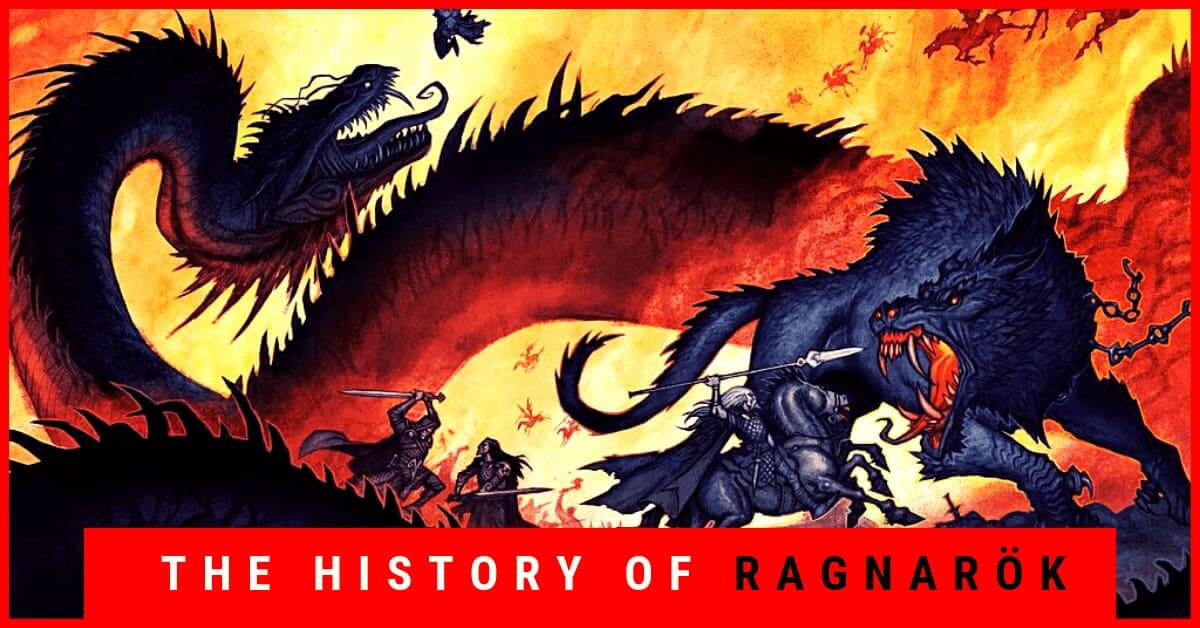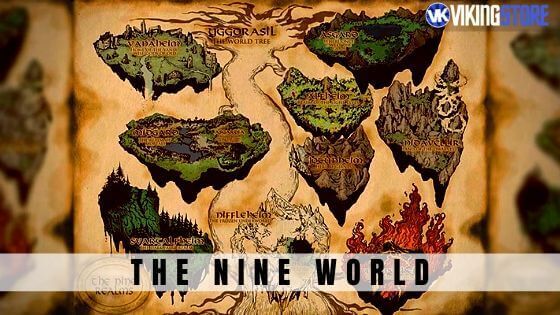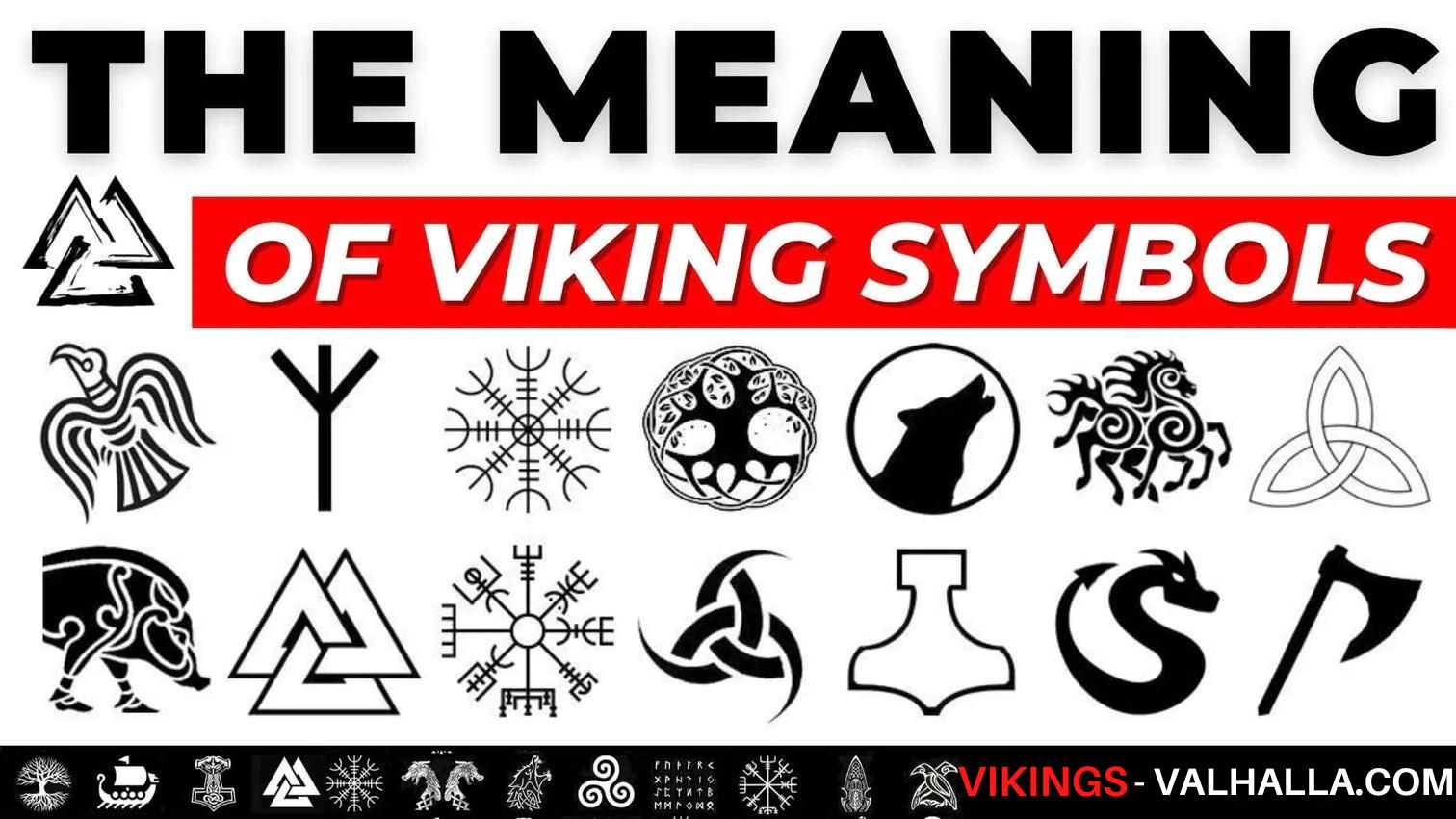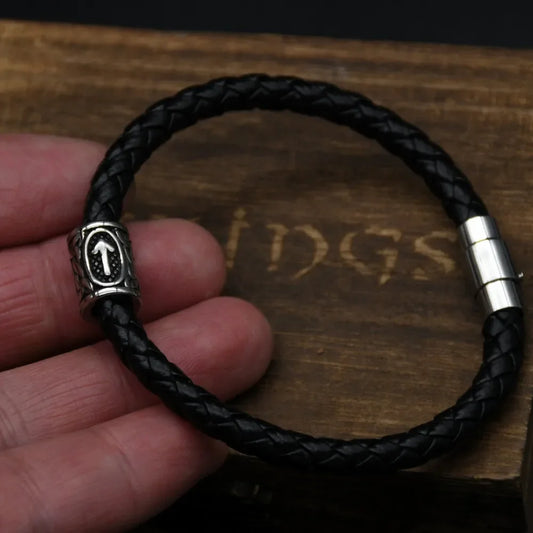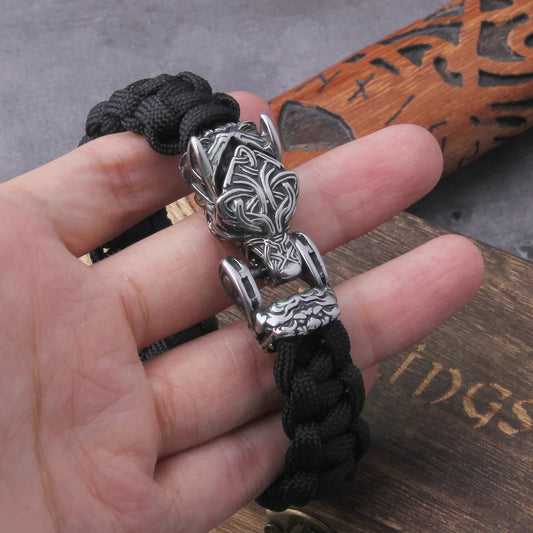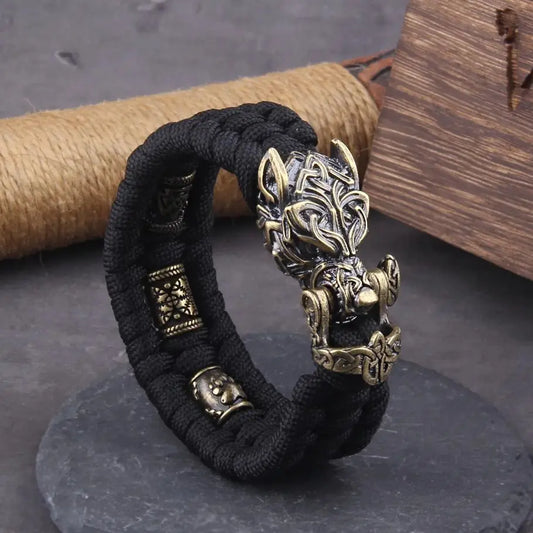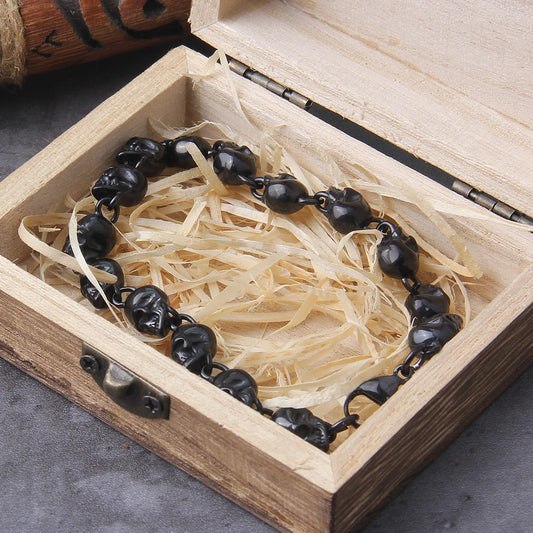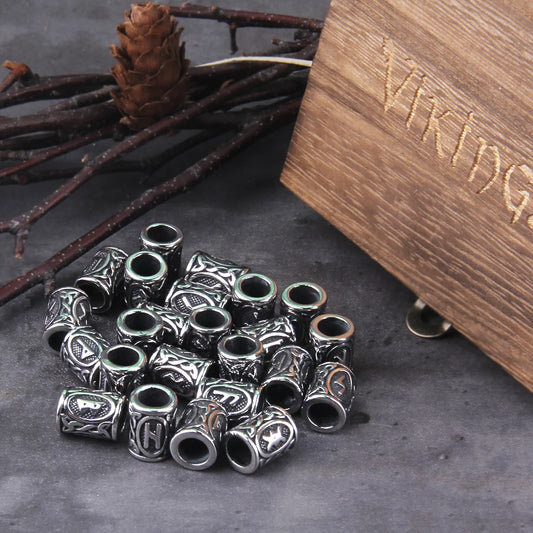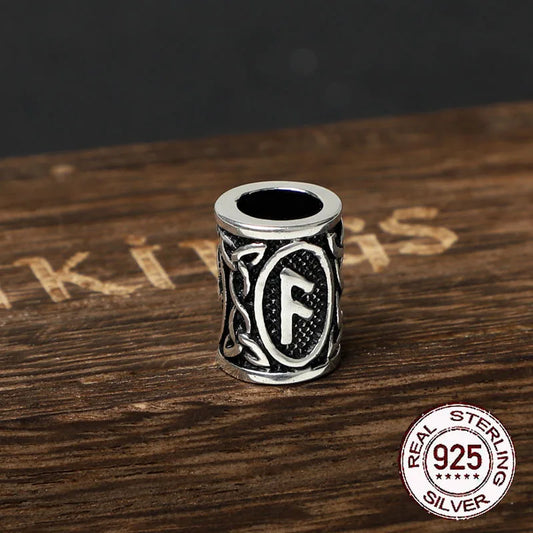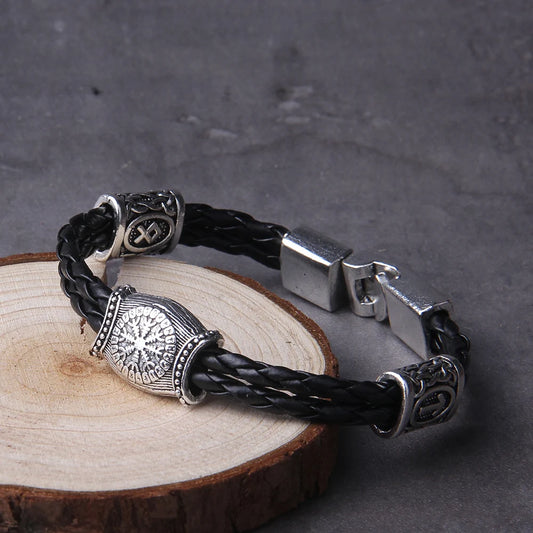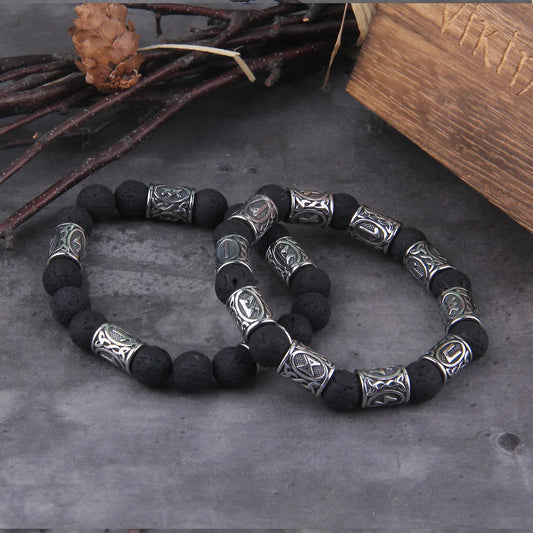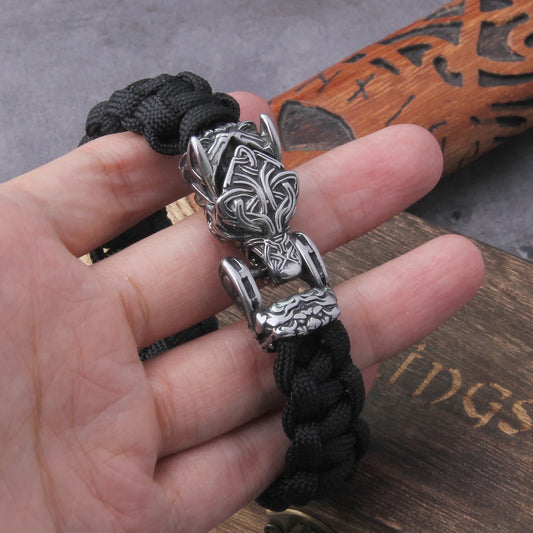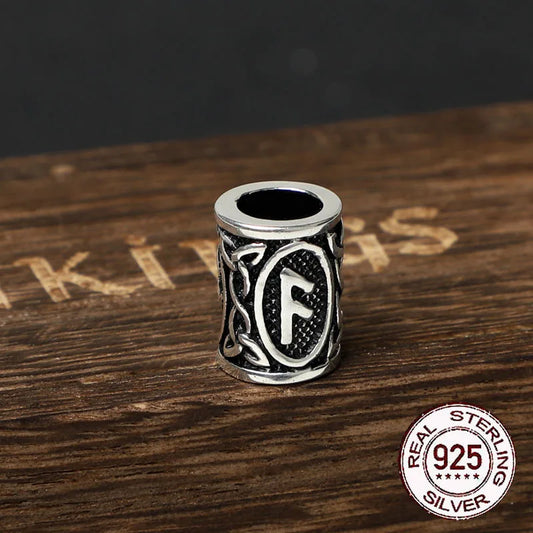Heimdall is the guardian god in Norse mythology. He is the son of Odin and nine female giants who nourished him with boar's blood.
He possessed keen eyesight, fine hearing and could go without sleep for several days. His perception was so extraordinary that he could hear the grass grow, which is why he was appointed guardian of the abode of the gods, Asgard, and of the Bifrost, the rainbow that bridges to it.
According to Norse mythology, with a horn called Gjallarhorn, given to him by Odin, he will announce the battle between gods and giants, after which the end of the world, the Ragnarök, will come. Heimdall will take part in the fight, in which he will die together with the god Loki.
Origin and history of Heimdall
In the course of a walk on the seashore, Odin once saw nine beautiful giants, the maidens of the waves, Egia, Augeia, Ulfrun, Aurgiafa, Sindur, Atla, Iarnsaxa, Gjálp and Greip lying asleep on the shores.
Odin was so charmed by the beautiful maidens that, as the Eddas relate, he mated all nine and they combined, at the same moment, to bring into the world a son who received the name of Heimdal.
The nine mothers proceeded to feed the baby with the strength of the earth, the moisture of love and the warmth of the sun, a diet that proved so empowering that the new god grew fully grown in an incredibly short space of time and ran to join his father in Asgard.
He found the gods proudly observing the rainbow of the Bifrost bridge, which they had just built with fire, air and water, the three materials that can still be seen in this extensive arch, where the three main significant colors of these elements shine: red representing fire, blue the air and green the cool depths of the sea.
Heimdall the Guardian of Asgard
Heimdall, blowing the Gjallarhorn, the horn that will herald the final battle between the forces of good and evil, the dreaded Ragnarok.
This bridge linked Midgard with Asgard and ended under the shadow of the mighty Yggdrasil tree, near which was the spring that Mímir watched over, and the only drawback that prevented the full enjoyment of the glorious sight was the fear that the frost giants would come to access Asgard.
At the time of Heimdall's arrival, the gods were deliberating on the advisability of assigning a trustworthy guardian and cheered the new recruit as someone suitable to fulfill the burdensome duties of his position.
Heimdall joyfully agreed to take on the responsibility and from then on kept watch day and night over the rainbow path that led into Asgard. To enable Heimdall to detect the approach of any enemy from afar, the assembly of the gods granted him senses so keen that he was said to be able to hear grass growing on the hills and wool on the backs of sheep, to see a hundred miles away as clearly by day as by night, and yet he needed less sleep than a bird - such was the mighty Heimdall.
Heimdall was also provided with a gleaming sword and an extraordinary horn, called Gjallarhorn, and the gods commanded him to sound it whenever he saw the approach of his enemies, the frost giants, pretending that its sound would awaken all creatures in heaven, earth and Niflheim. His last terrible sound would herald the coming of Ragnarok, the day when the final battle would be fought, and on which Loki would kill him.
To have this instrument, which was a symbol of the crescent moon, always at hand, Heimdall either hung it from a branch of the Yggdrasil above his head or dipped it in the waters of the spring of Mímir. In the latter place he lay next to Odin's eye, which was a symbol of the full moon.
Heimdall's palace, called Himinbjörg, was at the highest point of the bridge, and there the gods often visited him to drink the delicious mead with which he entertained them.
Heimdall was always depicted in gleaming white armor, so he was known as the shining god or god of light. He was also known as the gentle, innocent and indulgent god, names he deserved, for he was as kind as he was beautiful and all the gods loved him dearly.
Connected on his mothers' side with the sea, he was sometimes related to the Vanes and since to the ancient Norse, especially the Icelanders to whom the sea surrounded them, he seemed the most important one, believing that everything had emerged from there.
Heimdall and the Brisingamen
Heimdall delivers Brisingamen to Freya, after snatching it from Loki (commonly mistaken for the fire giant Logi due to his pronunciation). Thanks to his extremely acute hearing, Heimdall (the god of light) heard, at night, the soft sound of what seemed to be cat footsteps in the direction of Freya's palace, Folkvangr.
He directed his eagle's sight in the darkness and perceived that the sound was produced by Loki, who, having crept into the palace like a fly, had approached Freya's bed and was attempting to steal her shining golden necklace, Brisingamen, the emblem of fertility and harmony of the Earth.
Heimdall, the guardian of the rainbow Bifröst, saw that the goddess was asleep in a posture that made it impossible to open her necklace without being awakened. But the wily Loki stood hesitantly by the bedside for only a few moments and then began to mutter the runes that allowed the gods to change form as they wished.
While Heimdall was keeping an eye on the situation, Loki was reduced to the size and shape of a flea, after which he slipped under the sheets and bit Freya's side, thus causing her to change her position without being awakened from her slumber.
The clasp was now in sight and Loki, carefully opening it, obtained the coveted treasure and proceeded to leave with it without delay. Heimdall immediately launched in pursuit of the night thief and, quickly catching up with him, unsheathed his sword from its sheath with the intention of cutting off his head, when the god transformed into a flickering blue flame.
Quick as thought, Heimdall transformed into a cloud and quickly sent rain to put out the fire. But the evil Loki altered his form just as quickly to transform into a polar bear, which opened its jaws to swallow the water. Heimdall, undeterred, then took on the form of a bear and attacked ferociously.
But as the fight threatened to end disastrously for Loki, he transformed himself into a seal and after Heimdall, the one with the golden teeth, imitated him, the last fight was fought, which ended with the defeat of Loki, who was forced to surrender the necklace, which was duly returned to Freya by Heimdall.
In this myth, Loki can be taken as a symbol of drought or of the baleful effects of the too hot heat of the Sun, which comes to rob the Earth (Freya) of her most precious ornament (Brisingamen). Heimdall is a saving personification of rain and gentle dew, who, after fighting for a while against his enemy, the drought, which Loki represents, ends up defeating it and forces him to give up his prize.


